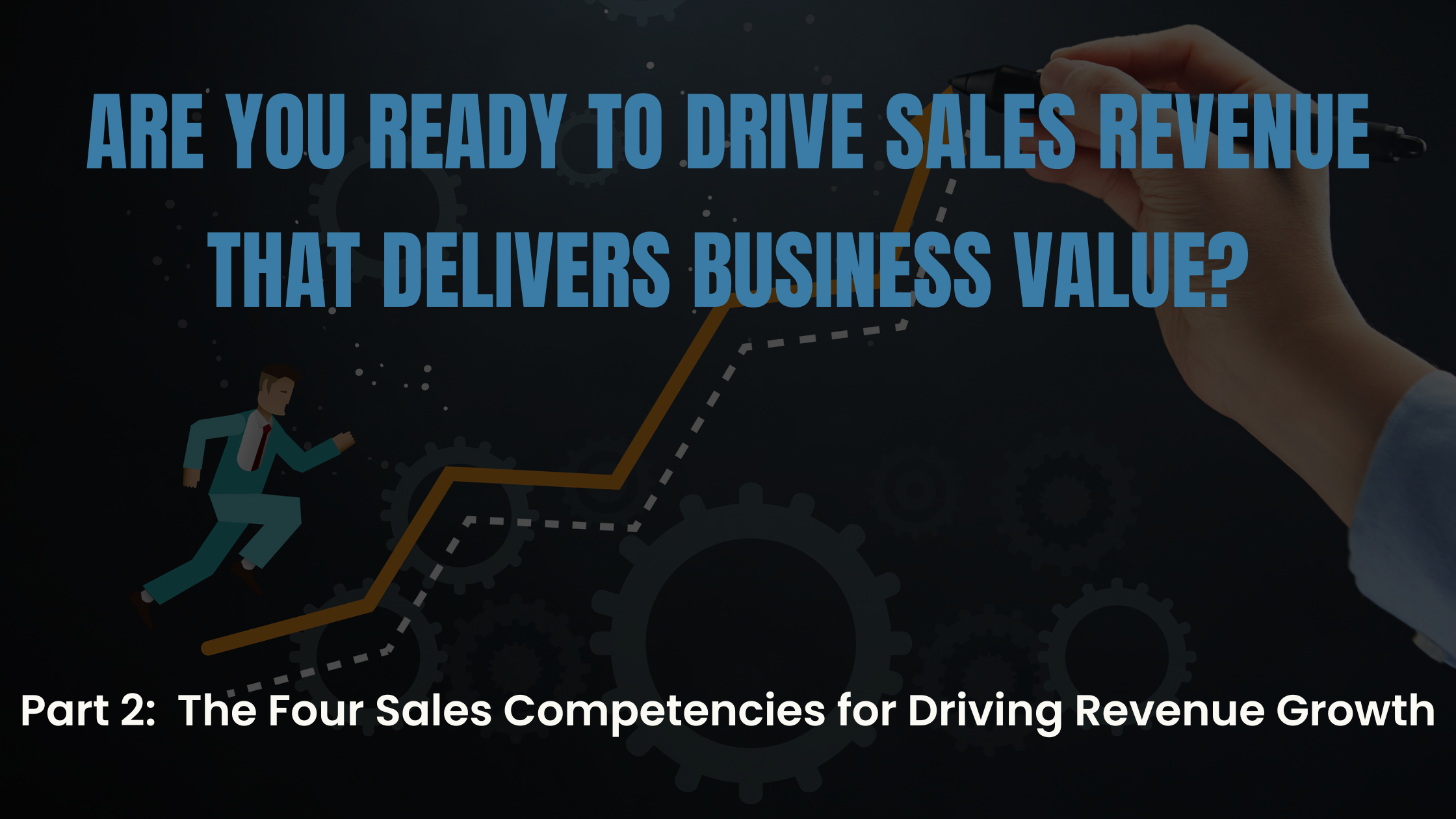

Since 2010, the Global Law Experts annual awards have been celebrating excellence, innovation and performance across the legal communities from around the world.
posted 1 year ago

You are the brand-new Vice President of Sales attending your first executive planning meeting. You swagger into the board room, seat yourself to the right of the CEO at the head of the board table (the position of power), and look around at your colleagues with the confidence that says … I belong here! And you do… you have worked hard, you have excellent credentials, you excelled as a salesperson, and you are ready to take on this new challenge!
The CEO, after welcoming you to the “adult’s” table, then proceeds to lay out the strategic plan that has been underway for 12 months, reviewing the components of the economic engine that are now in place to support a growth strategy that delivers true value to the company. The financial resources have been secured, the operational improvements have been made, the human resource plan is now in place, and the commitment to the shareholders has been made…
The CEO looks your way and announces … “and now our new VP of Sales will outline the elements of the sales strategy to get us there”! And that’s when it hits you … “I need a plan”!
This is the second of a 3-part series examining the key drivers of successful revenue growth that creates real value. In the first part, we looked at the organizational elements required to be in place to ensure that the company can deliver on the promises made by the sales department. We discussed how the resources of the company should be properly organized to deliver on the plan, to maintain balanced momentum as the revenue accelerates.
This time around, we will look at the key sales competencies that our new VP must establish to provide the fuel that will sustain the corporate strategy that represents the number one objective of 66% of all CEOs: Growth!
When it comes to the competencies of a sales team or company, the focus shifts from individual skills to collective abilities and strategies. Here are four key sales competencies that are crucial for a successful sales organization…
A well-defined sales strategy is fundamental to a company’s success in the market. This competency involves setting clear objectives, defining target markets, segmenting customers, and determining the best approaches for reaching and engaging potential buyers. A strong sales strategy also includes pricing strategies, distribution channels, and sales forecasting.
While this sounds like “Sales 101”, it is surprising how many companies identify sales strategy as a major pain point.
89% of small to mid-size companies surveyed** indicated that they struggled to identify how they were positioned within their industry, the strengths and weaknesses of their key competitors, and even their value proposition (more than half of small to mid-size companies reported that they didn’t have a value proposition).
Of course, these are all essential elements of a successful sales strategy.
Establishing a standardized and efficient sales process is essential for consistent results and scalability. This competency includes defining the stages of the sales cycle, creating a structured approach to lead generation and qualification, and implementing sales methodologies that guide salespeople in their interactions with customers.
The sales process is a structured series of steps that a sales team follows to guide a prospect from initial contact through to a closed deal.
Simple right?
Yet only 10% of the companies surveyed stated that they have done an adequate job educating their sales teams on the essential steps.
Sales methodology refers to a systematic approach or framework that guides the sales team in how they interact with prospects and customers throughout the sales process. It provides a set of best practices, strategies, and tactics for selling effectively. Several sales methodologies exist, and organizations may choose or adapt one based on their specific needs, but we will do a deeper dive into these options in part 3 of this series.
At the end of the day, it’s about consistency in the sales process that helps ensure that sales activities are systematic, consistent, and aligned with the company’s sales strategy.

Investing in the continuous development of sales teams is a critical competency. Providing sales training, coaching, and mentorship helps salespeople acquire the skills they need to excel in their roles. Ongoing development programs also keep sales teams updated on industry trends, product knowledge, and sales techniques.
While this clearly would benefit the salesperson’s ability to close business (also a major bonus to the company), there is the additional benefit of building and retaining a seasoned, experienced sales force. In fact, Forbes magazine recently stated that “skills are becoming the new currency” for hiring and retention.
According to a LinkedIn Learning report, 94% of employees would stay at a company if it invested in their career development.
Michael Dell, the founder of Dell Computers once said “Our business is about technology, yes. But it’s also about operations and customer relationships.”
In today’s data-driven business landscape, companies can and must leverage data analytics and technology to make informed decisions about customers to optimize sales performance. This competency involves using customer relationship management (CRM) systems, sales analytics tools, and data-driven insights to track sales activities, analyze customer behaviour, and make data-backed decisions for improving sales strategies.
Once upon a time, these tools were expensive and limited only to those experts in the IT department with the skills to extract meaningful information from reams of data. Today, advances have made these tools cost-effective and user-friendly to the point that sales teams can effectively track customer interactions through the sales funnel, maximizing the opportunity to close business like never before.
Let’s get back to our new VP of Sales and the challenge to develop an effective sales plan to fuel the overall company objective for sustainable and predictable growth! The good news is that sales strategy and technology have advanced to provide the roadmaps and the tools necessary to establish an effective sales strategy for any industry. The key components include:
These four competencies work together to create a strong foundation for a successful sales organization. A well-defined sales strategy informs the sales process, and ongoing training and technology enable sales teams to execute that strategy effectively. Additionally, continuous evaluation and adjustment of these competencies are essential to stay competitive in a dynamic marketplace.
Finally, the effective implementation of these strategies is proven to generate positive sales results that meet corporate objectives and allow our VP of Sales to maintain that confident swagger!
** Data compiled from client results from 3,686+ completed SAA 4.0s pre-engagement surveys from 12/1/2018 – 12/31/22. ©Sales Xceleration.
Get the latest legal news and updates at Global Law Experts
Author


No results available
posted 4 days ago
No results available
Find the right Legal Expert for your business
Sign up for the latest advisor briefings and news within Global Advisory Experts’ community, as well as a whole host of features, editorial and conference updates direct to your email inbox.
Naturally you can unsubscribe at any time.
Global Advisory Experts is dedicated to providing exceptional advisory services to clients around the world. With a vast network of highly skilled and experienced advisors, we are committed to delivering innovative and tailored solutions to meet the diverse needs of our clients in various jurisdictions.